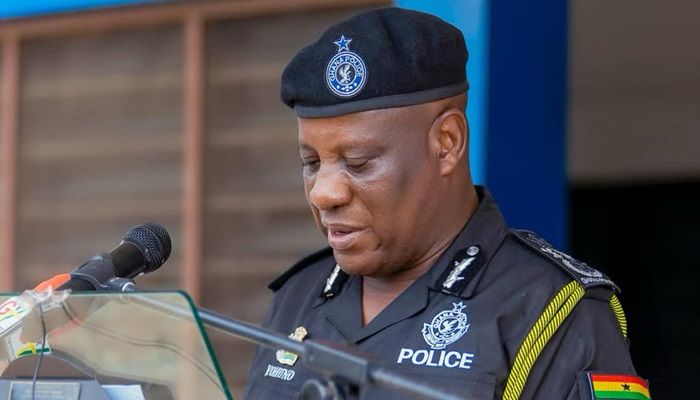The Inspector-General of Police (IGP), Christian Tetteh Yohuno, has made a fervent appeal to the youth of Bawku to renounce violence and actively participate in the ongoing peacebuilding efforts in the conflict-ridden town. His visit followed a recent resurgence of violence on Wednesday, April 9th, which resulted in a fatality and several injuries, including those sustained by security personnel. The IGP’s message underscored the importance of community collaboration in restoring peace and stability to the region, emphasizing the role of the youth in this critical endeavor. He stressed the need for them to embrace peaceful coexistence and contribute to the healing process, echoing the widespread desire for lasting peace in Bawku.
During his address to the community on Friday, April 11th, the IGP emphasized the police’s commitment to fostering trust and cooperation with the youth. He announced a planned preferential recruitment drive specifically targeting young people from Bawku, offering them a chance to contribute to the security and stability of their community. This initiative aims to engage the youth positively, providing them with opportunities for meaningful employment and integration into the law enforcement structure, thereby promoting a sense of ownership and responsibility in the peace process. The IGP reiterated the need for open communication and mutual respect between the police and the community, essential elements in building a sustainable peace.
The IGP’s proposal of preferential recruitment represents a significant step towards addressing the underlying issues fueling the conflict. By offering the youth a stake in maintaining peace and order, the police aim to create a sense of shared responsibility and encourage active participation in conflict resolution. This initiative also seeks to bridge the divide between law enforcement and the community, fostering greater understanding and cooperation. The message is clear: the youth of Bawku are not merely recipients of peace but active agents in its establishment and maintenance. Their involvement is crucial for the long-term stability and prosperity of the region.
The violence that erupted on April 9th serves as a stark reminder of the fragility of the peace in Bawku and the urgent need for concerted action. While the immediate priority is to address the aftermath of the clash and provide support to the victims, the long-term goal remains the establishment of sustainable peace. The IGP’s visit and his proposed initiative represent a crucial step in this direction, emphasizing the importance of engaging the youth and providing them with opportunities to contribute positively to their community. This commitment to community-based solutions underscores the belief that lasting peace can only be achieved through collaborative efforts.
The IGP’s assurance of prioritized recruitment for Bawku’s youth is not merely a symbolic gesture but a tangible commitment to empowering the community and fostering a sense of ownership in the peace process. By integrating the youth into the security apparatus, the police aim to create a more representative and responsive force, better equipped to address the specific challenges faced by the region. This approach recognizes the youth’s potential to be agents of change and acknowledges their crucial role in building a peaceful and prosperous future for Bawku.
The success of this initiative, however, hinges on the active participation and cooperation of the youth themselves. The IGP’s appeal for them to lay down their arms and embrace dialogue represents a critical juncture in the ongoing peace process. It is a call for them to choose the path of peace over violence and to actively contribute to the healing and reconciliation of their community. The future of Bawku rests on their willingness to embrace this opportunity and work together to build a brighter future. The preferential recruitment drive is not just about providing jobs; it is about empowering the youth to become architects of their own destiny and guardians of peace in their community.














